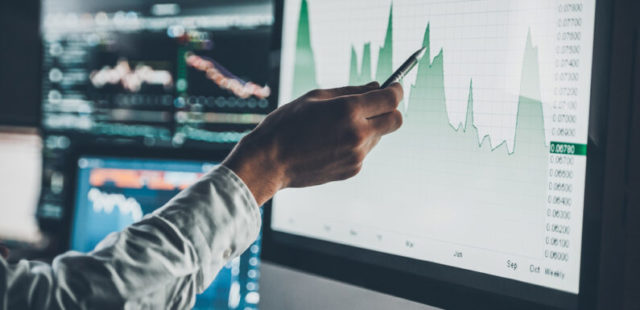The news on Tuesday that Russian President Vladimir Putin would withdraw some of his troops from Ukraine and would be willing to engage in dialogue with Western leaders to avoid a war in the region gave financial markets a day of relief. global.
The main American and European stock exchanges closed at significant increases, of more than 1%. In Brazil, the Ibovespa reached the highest score and the dollar the lowest since September last year, also navigating international optimism.
For market analysts, however, the soap opera involving the Russian threat of invasion of Ukraine is not over yet, and should continue to cause turmoil in the markets for some time to come.
This is because the consequences of a war there could be disastrous for both the regional and global economy, worsening an already bad situation of tight supply and high prices for basic products such as oil, gas and food.
For that reason, only a clear certainty that the conflict has indeed dissipated would lift the shadow of this cloud from an already cloudy sky to global stock exchanges in 2022.
“Ukraine is a major global supplier of wheat and corn, and Russia is a major producer of gas and oil,” says Fernando Bresciani, investment analyst at Andbank Brasil. “If there is a conflict there, Europe stops receiving these products and prices can rise even more.”
All these items, which are commodities traded on international exchanges, would be more expensive for the world all in the event of a supply breakdown there for European customers – and the mere doubt of the threat has already made their prices go up.
The barrel of oil, for example, which has already come out of the pandemic more expensive, has exceeded US$ 90 in recent days and is now at the highest prices in seven years.
“We already have problems with production bottlenecks in the world in this post-pandemic, and even more expensive oil means more expensive logistics and products too”, explains Rodrigo Franchini, partner at Monte Bravo Investimentos.
“That would make global inflation, which is already high, even more persistent and central banks would have to raise interest rates even more than anticipated, which would further sacrifice economic growth,” he adds.
It is this succession of recessive effects that has entered the radar of analysts and investors around the world in recent weeks and that has helped to embitter the stock markets.as Russia and the United States raised the tone and increased military apparatus on Ukraine’s borders
On New York stock exchanges, the S&P 500 is down 6% since the start of the year and the Nasdaq 100 technology index is down more than 12%. The Euro Stoxx 600 European stock index is down 4%.
Ibovespa with luck
Contrary to the rest of the world, the Ibovespa, the main stock index of the Brazilian stock exchange, has managed to survive the international turmoil and maintain a positive performance at the beginning of 2022. Since the beginning of the year, the index accumulates a high of 9.5%.
This happens in large part as a setback to the poor performance of the Brazilian stock exchange last year, when it was among the worst in the world.
“The macroeconomic scenario still doesn’t help, but the investor sees that the Brazilian stock market is much cheaper than it should and sees an opportunity”, says Franchini, from Monte Bravo.
That’s it, explains the analyst, who helped bring back a lot of big investors to B3 in January – including the massive return of foreign investors.
The moment of bonanza, however, in the view of analysts, should be more of a temporary correction of the exaggerated falls of 2021 than a flow that is here to stay, precisely because the external situation is not favorable for risky assets, such as stocks, and, especially from emerging countries.
“The Ibovespa should no longer go back to the 105,000 or 106,000 points it reached, but it won’t go back to 120,000 now. He should be walking sideways on that fixed,” says Franchini. The Brazilian index closed at 114.8 thousand points on Tuesday.
oil and banks
For Gustavo Harada, head of the variable income table at BlackBird Investimentos, there is also a reasonably clear separation between sectors that stand to gain and lose in the Brazilian market in the current context.
“The Ibovespa has managed to hold on with the help mainly of commodity companies and banks, which have had very positive results,” he said.
Oil companies, such as Petrobras and PetroRio, are some, for example, that can gain from the most expensive barrel in the wake of stress in Ukraine.
“The oil and gas, financial and banking sectors, and the food and beverage sector, with better expectations in the meat operation in the United States, should benefit in 2022”, says Harada.
“On the other hand, retail, consumer and e-commerce actions are more sensitive and can still be greatly impacted.”
Source: CNN Brasil
I am Sophia william, author of World Stock Market. I have a degree in journalism from the University of Missouri and I have worked as a reporter for several news websites. I have a passion for writing and informing people about the latest news and events happening in the world. I strive to be accurate and unbiased in my reporting, and I hope to provide readers with valuable information that they can use to make informed decisions.







